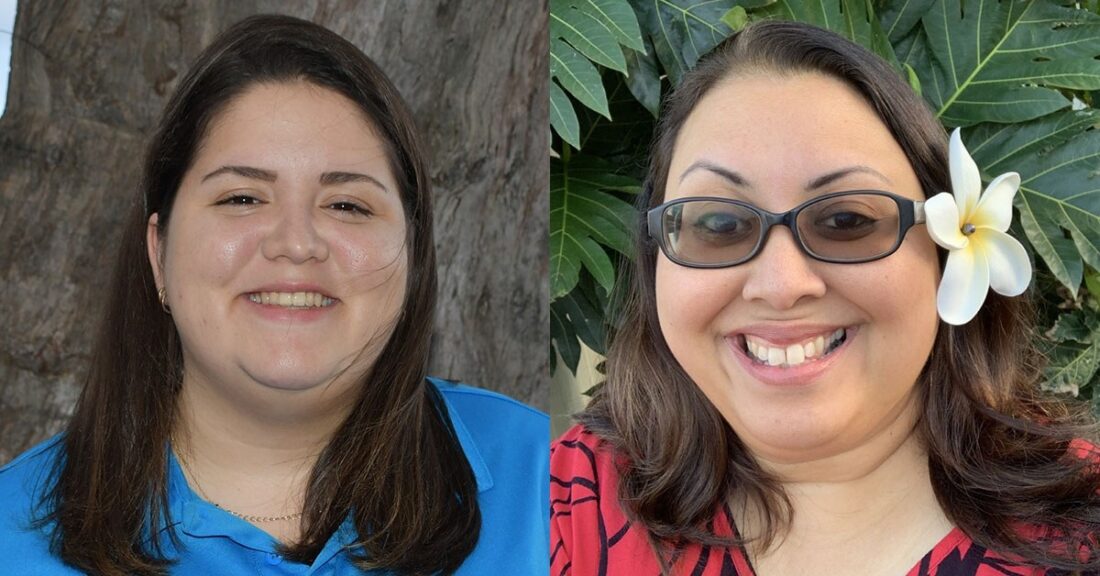A Vital Records Win for Hawaii’s Young People in Foster Care

From left: Melissa Mayo and Delia Ulima
Young advocates have been leading the way as Hawaii takes steps to deliver vital records to 18-year-olds in foster care.
Too often, young people have aged out of foster care and into adult independence without essential records — a certified copy of a birth certificate, a social security card and a state ID card — needed to get a job or rent an apartment, says Melissa Mayo, a youth advisory board leader in Hawaii.
“It’s not fair to them,” says Mayo, age 22, who lives on the island of Hawaii and whose experience in foster care informs her work. “It’s just simple. Why isn’t it happening?”
The Advanced Youth Leadership Institute
The Advanced Youth Leadership Institute (AYLI), created in 2020 by the Annie E. Casey Foundation’s Jim Casey Youth Opportunities Initiative®, gave Mayo a chance to find answers.
From October 2020 through June 2021, AYLI tapped Jim Casey Young Fellows from across the country to address challenges in their communities. Each participant conceived and led a project while coached by a seasoned advocate. The program compensated them, and in some cases, their work led to employment for them or grants at their host sites.
Creating Change in Hawaii
Mayo steered a project to cut red tape in Hawaii’s child welfare system so that 18-year-olds would be better prepared to live on their own. She led fact-finding discussions with child welfare workers, agency administrators, court representatives and young adults.
The challenges, she says, opened her eyes. It was everyone’s responsibility but no one’s job to apply for and assemble all the records in a timely fashion. The young adults live on different islands within the state. Caseworkers feel overwhelmed. Multiple federal and state agencies generate vital records, including immigration papers, state identification cards and medical records.
As collaborators in the project, Hawaii’s Child Welfare Services brought on a partner through Family Court to examine and update the files of all 18-year-olds who would age out of care within six months. The partner, like Mayo, had experience with the system. The records clean-up demonstrated what was possible.
Impressed with the effort, Child Welfare Services officials instituted monthly record checks. The goal, going forward, is to ensure that all 18-year-olds receive their legal documents, whether they will be living independently, joining families through permanency options or staying in extended foster care.
The Benefits of Advocacy for Young People
“This is ongoing now, and there’s no going back,” Mayo says. “I’m grateful to have the understanding of how to do the work, and how to work with the branch administrator and other partners. I was able to see that there is a lot of effort, and there are many hands that work together to get things done.”
Mayo’s project partner and coach witnessed her maturing into her role.
“She developed skills to facilitate the meetings and the ability to think through a strategy,” says partner Delia Ulima, statewide initiative manager for HI H.O.P.E.S., one of 17 Jim Casey Initiative sites nationwide. “It takes a higher level of engagement, back and forth, and to see her rise to the level of following through on a huge project like that was wonderful. I’m proud of her.”
AYLI imparts new skills, fosters mentoring partnerships and provides many young advocates their first leadership role. The training was a “leadership booster” and many projects benefited youth currently in foster care, says Alexandra Lohrbach, a senior associate at the Casey Foundation.






